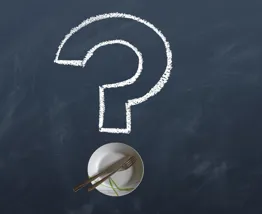Enrol in an online course today for flexible, self-paced learning—no fixed schedule required. Plus, enjoy lifetime access to course materials for convenient revisiting.
Pillars of Strength 7/8: Structure

In the chaos of grief we can feel tilted off our central axis. It helps to build a pillar of structure, although it is also important to allow flexibility within it – for too much controlling behaviour can be counterproductive. Because grief and the pain of loss are invisible, committing to doing tangible things in our everyday life can be really helpful, enabling us to manage the pain and gain satisfaction by completing even a small task.
The process of grieving is the movement between the poles of loss and restoration. If we create a sustainable structure in our daily life, it creates opportunities to allow us to move between the two, and in the process adapt to this new life we find ourselves in. Psychologists suggest that not only are we meaning making beings but we are naturally habitual. It saves psychological resources to have regular habits, like putting our left sock on and then our right sock when we get dressed, rather than having to work out what we do every morning.
Only we can know what habits work for us individually. But as therapists we can support our clients to establish the commitment and discipline to consistently follow the structure they’ve designed that best suits them. It builds self-esteem and self-efficacy when a client can be helped to reliably trust in themselves. The other Pillars of Mindbody (see Blog 5), Limits (see Blog 6) and Focussing (see next week’s blog) are an integral part of our Structure when we are bereaved.
Developing a structure
- Exercise first thing. Perhaps this could be a different exercise on different days, like weight training on one day and a sport another. It is recommended we take exercise 4-5 times a week for the minimum of 20 minutes each time.
- Include some work or chores. It helps concentration to limit this to 40 minutes at a time, like a school lesson. Our concentration is limited when we are bereaved, so after 40 minutes, get up, get a breath of air, a cup of water, walk around and then go back for another stretch of time.
- Take time to remember the person who has died. This would not necessarily be every day, though some people feel giving even a small nod to the person who has died, like stroking their photograph, supports them to manage all the things they have to do without them.
- Actively choose to do soothing, calming things. This could be buying flowers, having a massage, cooking nice food, watching box sets, or listening to music. Some find it takes a long time before they can concentrate on reading.
- Build good sleeping habits. Switch off all phones and computers two hours before bed, have a cold, dark bedroom, and don’t work or watch television from your bed so that it is associated with sleep and relaxation.
Supporting our client to develop a structure of good habits has the multiplier effect: the more they do them, the better they feel. It takes about six weeks for a habit to become so habitual that we do it without thinking about it.
Find out more about Julia’s work and writing at https://juliasamuel.co.uk/


















